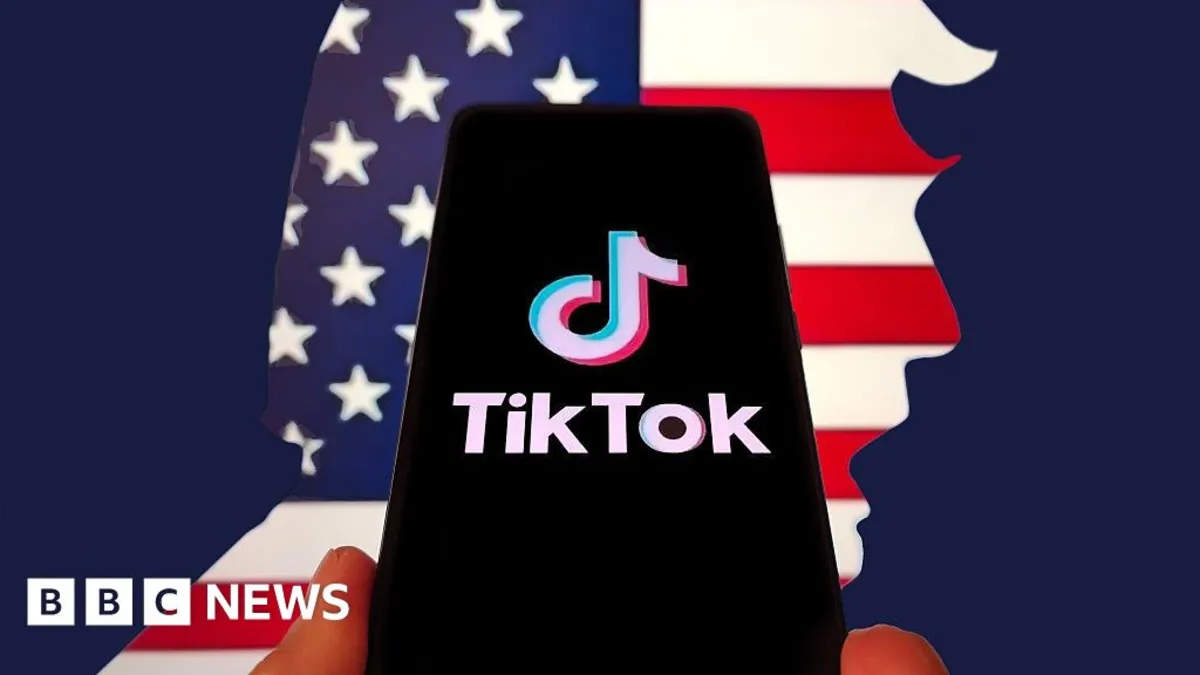
In a significant development, China is heralding a potential deal concerning TikTok as a substantial victory. As discussions unfold between US President Donald Trump and Chinese President Xi Jinping, a framework agreement has emerged, suggesting a possible sale of TikTok's US operations to American firms. This move could mark a major breakthrough in US-China trade negotiations, addressing a contentious issue that has captured headlines for years.
For TikTok's 170 million users in the United States, this deal could lead to a new version of the app tailored specifically for American audiences. Reports indicate that a consortium, potentially including tech giant Oracle and investment firms like Andreessen Horowitz and Silver Lake, might acquire the US operations. However, much remains uncertain about how this transition will affect the user experience, with suggestions that the app may operate on a modified, less dynamic version of its original software.
At the center of this negotiation lies TikTok's coveted algorithm, often referred to as the app's "secret sauce." This sophisticated technology is responsible for curating personalized content for users, driving the app’s popularity and engagement. While other platforms like Instagram and YouTube have attempted to replicate TikTok's success, they have struggled to match its effectiveness, according to a former social media executive.
ByteDance, TikTok's Chinese parent company, has been reluctant to relinquish control over this intellectual property, backed by the Chinese government. However, a recent statement from China's top cybersecurity regulator hints at a shift in policy, indicating that Beijing may permit ByteDance to license the algorithm to a US entity rather than outright transfer it. This marks a notable change from China's previously rigid stance on technological exports.
Despite the optimism surrounding the deal, there are significant challenges to consider. US Treasury Secretary Scott Bessent, leading the negotiation team, emphasized that the user experience would retain "Chinese characteristics," a term often associated with the Chinese Communist Party's unique approach to governance. This has raised alarms among US officials regarding data security and national interests, which were the catalysts for legislation mandating TikTok to divest its US operations.
Moreover, Republican lawmakers express concerns that any framework allowing for the sale may still enable Chinese government influence over the app. Legal experts argue that merely licensing the algorithm does not fulfill the requirement for a complete separation from foreign control, complicating the approval process.
While the potential TikTok deal could represent a significant win for the Trump administration, it also has broader implications for China's technology landscape. The app, with its massive global user base, serves as a lucrative marketplace, contributing significantly to ByteDance's revenue. Experts estimate that TikTok could account for a substantial portion of ByteDance's projected $39 billion global revenue in 2024.
Moreover, retaining control over the algorithm allows ByteDance to maintain a competitive edge against future US apps that might emerge. This arrangement not only keeps TikTok operational in the US but also provides a framework for other Chinese tech firms aiming to enter the American market.
The ongoing negotiations over TikTok may also serve as a strategic tool for China in its broader trade relationship with the United States. As both nations navigate their economic interdependence, the TikTok deal could provide a pathway for improved dialogue and cooperation. High tariffs and export controls are points of contention, and a successful resolution regarding TikTok could ease tensions and foster greater collaboration.
As discussions continue, the timeline for a finalized deal remains uncertain. The complexities surrounding ownership, data management, and regulatory approvals could prolong the negotiation process. However, both sides appear motivated to find a resolution that meets their respective interests in this high-stakes game of international diplomacy.
In conclusion, while a TikTok deal might seem like a simple business transaction, it encapsulates the intricate web of technological, political, and economic factors at play between the United States and China. The outcome could reshape the landscape of social media and international trade, highlighting the delicate balance both nations must maintain in their ongoing relationship.